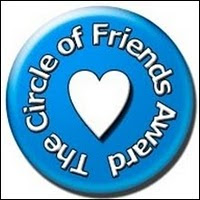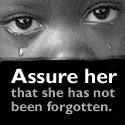There are many things in the church today that are not as Jesus would like them to be (all you need to do is read the Bible). Many churches are not loving and open enough to allow people to open their hearts to show the dirt that is hidden in them. In ‘Permission to Speak Freely: Essays and Art on Fear, Confession, and Grace ,’ Anne Jackson, who blogs as Flower Dust, hopes to bring more transparency – and love - into the church setting and in our lives.
,’ Anne Jackson, who blogs as Flower Dust, hopes to bring more transparency – and love - into the church setting and in our lives.
Here is the synopsis of this book :
:
What is one thing you feel you can’t say in church?
Anne Jackson posted this simple question on her blog in a moment of curiosity. The question struck a nerve. Hundreds of people from around the world responded; everyone had something to say.
Buoyed by this overwhelming reaction and her own life experience, Anne decided to dive deeper into what provoked such a profound response. Piecing together poems, stories, and personal insights, Anne explores the possibility of honest, real confession among saints and sinners.
Can someone really live a life of no secrets?
With raw honesty and humor, Anne shares her own struggles and writes about the tension between brokenness and holiness, cutting through Christians’ polite masks of “everything’s fine” and into the secrets shames we hide. She explores if faith and real life can co-exist, whether any secret is too shameful to confess, and most of all, if it’s really possible (and okay) to be a human in church today.
Here is Anne’s biography:
Anne Jackson is an author, speaker and activist. A contributing writer to various blogs and magazines, she is also the author of Mad Church Disease: Overcoming the Burnout Epidemic
Here is the very charming and compelling author focusing on the subjects of sanctuary and confession, which are prominently featured in her book:
In the Introduction, Anne shares the origins of this book :
:
People have shared thoughts about politics and sex and mental illness and confusion and racism and Jesus and poverty and music and addictions and money [on her blog, FlowerDust.net]. They all felt, for some reason, they couldn’t freely discuss these topics (and many others) in the church.
A year and a half later, the website PermissionToSpeakFreely.com launched, asking for artistic submissions of confessions (photos, postcards, letters, anything else) to be used in this book and on the website.
What are people afraid of? What’s holding them back? How do faith and brokenness coexist? Why do bad things happen? Where is God in all this mess?
The purpose of this book is simple: to share the confessions I’ve received from the website or through the mail, as well as stories from my own life and experience, to show you that you’re not alone in your battle with fear and secrets. I know not everyone who thumbs through this book is a Christian. I am, and so I write this from an ever-exploring, continually learning, faith-based point of view…
To be frank, I am somewhat tentative to share some of these confessions and stories because I don’t want to paint a negative picture of the magnificent creation of the church. So with that said, please know the confessions that are shared aren’t directed at the church.
Instead, I believe the confessions in this book fly as misdirected arrows, coming from hearts so wounded they desperately need grace, freedom, beauty…
….and hope (pp. xv-xvi)
Anne writes a chapter on fear. She resolves to stand up to it:
After three decades of letting Fear intimidate me, I’ve decided enough is enough. It’s time to fight back. Fear may still exist and hide in the corners of my heart and my mind, but I refuse to allow him to have the control he once had.
Well, at least I’m attempting to try.
I realize fear isn’t only affecting me, but humanity as well. As I look around today, I see them hooking into many people I encounter. Their hearts are fighting for their dreams, yet Fear claws away at their spirits, telling them their dreams are impossible.
These people want to have a family, go back to school, quit their jobs and move to Africa, ask that girl out, volunteer at a shelter, stand up for justice, pose a question, right a wrong, or say hi to their neighbor, but Fear soaks into their bloodstream like a paralyzing virus and prevent them from taking a step in the beautiful, wonderful, difficult life in front of them.
Fear wants to stop their stories.
And with the pain and brokenness and hurt in this world, we simply can’t let it. The human race needs a hope and faith and light now more than ever.
The Scriptures say that through the love of Christ, we are to be that hope. That light burning brightly on a hill. Not hiding in the darkness of a shadow of a nemesis named Fear.
Yet we can’t fight it ourselves. (pp. 4-5)
Anne grew up as a PK – Pastor’s Kid. She grew up in the South, and there were a lot of people who felt that they were her judge and juror. She also had an interesting on two members of the Trinity:
Over the next few years, not much changed. Jesus was distinguished as a gentle white man who obviously was a fan of Pantene (how else could His hair be so soft and shiny in the pictures?) and His Father, God, was the Angry General who kept us all in line because Jesus was too polite to do so. Jesus could tell us great stories, but it was God who had the final word.
The people in the churches we would attend, for the most part, played the role of God’s mouthpiece, letting me know what He didn’t like me to do. Like run in the church or wear jeans or sit somewhere other than the second row with my mom.
I searched the Bible for guidance and confirmation about where I was supposed to sit as a preacher’s kid or what I was supposed to wear at church, but I couldn’t find it anywhere. (p. 12)
Things got trickier as she grew up:
As I got older, the disconnect between what I’d read in the Bible and what people in the church would actually say or do became more apparent and more confusing.
If there was anything being a Traditional Southern Baptist taught me, it was that I needed to know my Bible.
I think that if those really mean, really political people in the church really knew the power the words of the Bible held, they wouldn’t want us reading it and memorizing it so much in Sunday school.
Themes of grace, forgiveness, and love are woven in and out of the tissue-thin paper. But proof of the opposite is more than often what so many of us experienced if we’ve spent any amount of time in church or around church people. (pp. 19-20)
In Anne’s sophomore year of high school, her father was forced to resign his position as senior pastor. The unkind way in which it was handled by that church and its members had a devastating effect on her family:
We didn’t go to church anywhere. We tried a few times, but it was too painful – for my dad, because he saw someone else in the pulpit living out his dream, and for my mom, because she projected her heartbreak and lack of trust on the members of whatever church we visited. (p. 25)
Anne decided to try church again, but she was sexually abused by a youth pastor. She reacted in her usual way:
As you saw from my playground experience earlier, I run when hurt hunts me down. I put the blame for the pain I was experiencing from the “relationship” with this youth pastor on God and began to run from my faith again. God and I were through. He obviously didn’t care about me, so I didn’t care about Him anymore either.
To help numb the pain, I began experimenting with a lot of things that weren’t healthy for me.
A little alcohol.
Some pills.
And pornography.
I know, I know. Porn is a guy’s problem. Girls – especially teenage girls – didn’t look at porn. (pp. 31-32)
In her early twenties, after more ups and downs with God, she attended a church where He met her where she was:
I can’t recall a specific moment when I finally chose to surrender my heart to God again. That makes me even wonder if there was a specific moment. Maybe it was just a lot of little moments stacked up on top of each other. God didn’t prove Himself trustworthy to me in one big burning bush. He didn’t guarantee my happiness or take all my fear in one fell swoop.
But He did find me again.
Or perhaps, maybe I just allowed myself to be found. (p. 43)
She accepted a paid position at that church, despite godly counsel telling her it would not work out:
The church continued to grow rapidly. We went from four services to ten every weekend. Because of my background in corporate communications, I was asked to take a new position – director of communication and media. The new title (and salary and office) tempted me. I was twenty-four years old and would be the youngest person, and one of the only women, on our leadership team. Ignoring advice from our youth pastor that I wouldn’t fit in with the more corporate structure of “Big Church,” I followed my own heart’s desire and accepted the new role.
As fate would have it, my direct supervisor and I didn’t see eye to eye on, well, just about anything. We both had a history in the corporate world, but we were a generation or two apart. Where he preferred independence and micromanagement, I favored collaboration and networking. As a way to branch out and learn from other church leaders, I started blogging regularly. In my musings, I would ask questions about church and leadership. I was just trying to figure it out too.
Evidently, that wasn’t a good idea.
I was pulled aside one afternoon and told I couldn’t ask questions about theology or church leadership philosophy on my blog, regardless of how generic or unassuming my thoughts were. (pp. 45-46)
She complied – but knew she had to move on:
I told him I wouldn’t blog anymore about sex, and then I started looking for another job – not in a church. I should have gone with my first instinct of staying away from church and Christians, because I never could wrap my mind around the tension of being who God created me to be in a place that required that I keep the most unique parts of who I was hidden. (p. 48)
Anne noted that the church was a place of sanctuary for hundreds of years. She asserts that we need to get back to that place:
At the risk of sounding overly idealistic, I’d like to say that for those of us who believe the church should be one of the safest places and most grace-giving places a person can experience here on earth, it’s time to reclaim what our faith stands for.
It’s time for us to politely but passionately disagree with those who make church a “safe” place by removing all messiness.
It’s time for us to put all we have out in the open – not for the sake of faux humility or self-deprecating exploitation or attention, but for recognizing the things the Cross stands for and left for us: ultimate love and undiscriminating grace. (p. 85)
Anne has been profoundly moved by Jesus’ parable about the Prodigal Son as found in Luke 15. She had some realizations:
I choked back tears because I realized a few things. One, God wasn’t disappointed in me for not making something happen. He wasn’t mad because I hadn’t figured it out. Honestly, that was one of my biggest fears – that I had somehow disappointed God by not unraveling the mystery of how to transfer the knowledge of His truth from my mind into my heart.
And two, I was free from that responsibility. Sure, I had to prepare myself by learning the character of God and understanding the depth of His grace. But then I simply need to trust that He will guide me into what my next step is by illuminating something inside me as I continue the process of healing.
You can’t will transformation. You and I fail miserably when we try to work our way out of addiction, shame, anger, or envy instead of letting God work out His way in us.
You’ve been walking a long way on a journey back home. You’re scared to see your Father’s face because you know how much pain your sin has caused Him. You’re willing to do whatever it takes to be back home, even though you feel unworthy.
Now you can stop.
Let Him run to you. Let Him meet you where you are. You don’t have to beg your way back. He never stopped loving you, and after you confess, let Him celebrate your rescue and the beginning of the transformation. (p. 95-96)
In addition to God helping us, we need to accept the help of others. Anne became a friend of Jamie Tworkowski, founder of a movement called To Write Love on Her Arms. TWLOHA is a non-profit movement dedicated to presenting hope and finding help for people struggling with depression, addiction, self-injury and suicide. TWLOHA exists to encourage, inform, inspire, and also to invest directly into treatment and recovery. He shared this with Anne when they met up in New York City:
“Okay,” he said, tugging on the sleeves of his jacket and leaning forward on the table. “I’m sort of a freak about Bono. So there’s this song U2 does called ‘One,’ and there’s a line in it that says, ‘We get to carry each other.’ I read an interview recently where Bono talked about how it makes him mad when people sing that line wrong. They sing, ‘We have to carry each other’ instead of ‘We get to carry each other.’ So basically, he said if you sing it like we have to carry each other, we’re missing the privilege of it. We don’t have to – we get to. It’s an obligation, and stretch, and it take so much effort. But in the end, it’s a privilege that we get to carry each other. That’s just so right on. It’s so true.” (p. 177)
I know that song very well, and I never interpreted carrying each other as being a privilege in the way Bono wrote it to mean.
In closing, Anne says we have to choose to move away from fear:
Each time we decide to take a step away from fear, we begin to move forward into a life completely energized and rich in the freedom God has for us. And as we take more steps into freedom, our actions have the power to set others on that same course of freedom as well.
Only you can give yourself permission.
Not me. Not this book.
Not the church, whether you go to one or not.
Only you can give yourself the permission to speak freely.
Don’t let fear stop you.
Someone is waiting on you to tell your story. To share how you’re being rescued. To share how scary it is but how beautiful it is. Someone is waiting for the little ounce of courage that your voice can give them, so they can begin to find their piece of freedom. (p. 187-188)
This book is a combination memoir and submissions from Anne’s readers. It is raw and real. I grew up in a home in which there were a lot of secrets; unbeknownst to me until I was in it, I also married into a family with that mindset. So it is easy for me to want to be ashamed of and find the messy issues with others. I am amazed at her openness and think it helps other people to expose your hearts so that others are aware that they are not the only ones struggling. So I appreciate Anne exposing herself and her issues with the intention of helping others; so much courage! She has certainly helped me, and I in turn intend to use it to help others.
Although I own ‘Mad Church Disease: Overcoming the Burnout Epidemic ,’ Anne’s first book, I have not read it as yet. I have had it in my heart to be employed in a Christian ministry for a long time – but I think the Lord wants to do some more work in me before. I think her book will help me to get an insider’s perspective on working in a church, just as this book shows outsiders what it’s like to deal with depression, addiction, etc…
,’ Anne’s first book, I have not read it as yet. I have had it in my heart to be employed in a Christian ministry for a long time – but I think the Lord wants to do some more work in me before. I think her book will help me to get an insider’s perspective on working in a church, just as this book shows outsiders what it’s like to deal with depression, addiction, etc…
You can order this book here .
.
This book was published by Thomas Nelson Publishers and provided by Book Sneeze, its blogger review program, for review purposes.
















.jpg)


No comments:
Post a Comment